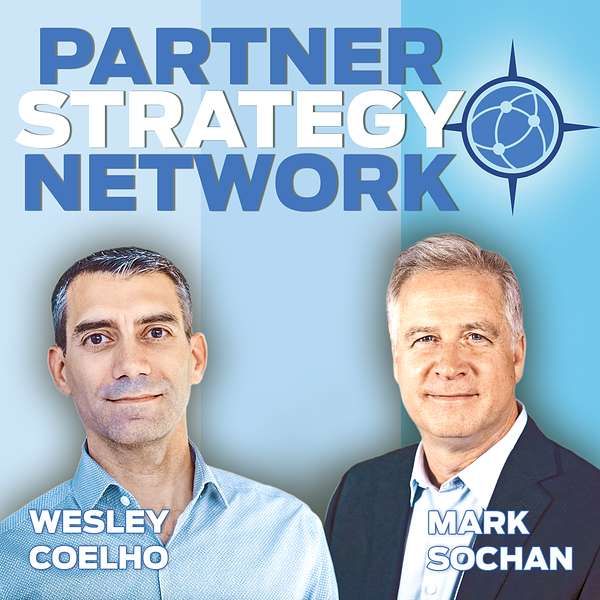
Partner Strategy Network Podcast
Partner Strategy Network Podcast
Ep. 14 - How do resale and OEM legals work?
Ever wonder how legal agreements work when there's a reseller between the software vendor and the end customer? How does the end customer agree to the vendor's license agreement and who do they commit to pay? Check out this episode to hear how it works for both resale and OEM transactions.
Mark: Hello and welcome to the Partners Strategy Network podcast. I'm Mark and I'm here with Wesley Coelho. Hey Wesley, how's it going today?
Wesley: Hey mark. Doing well.
Mark: Good. So today we're going to go over how legals are typically handled for resale and OEM transactions, which isn't always obvious.
Wesley: And when you say legals, often some people say legals, some people say paper, what are they talking about when they say those words?
Mark: Well, what they're talking about is that when you sell software, you are granting your customer, a license to use your software. And that license always sets out an agreement between the parties. That agreement is going to specify things like what the software can be used for limitations, for liability, warranties, and any identification.
Wesley: So in a normal direct sale between a vendor and a customer, how do the parties usually agree to those terms?
Mark: For lower value software purchases, for example, off of a website, this can be as simple as a customer, checking off a box or a click wrap to accept the terms for large enterprise software sales, the parties will typically sign an end-user customer. And in most cases that comes after a substantial negotiation of business and legal terms.
Wesley: All right. So that's a good explanation of what we mean by legals or the paper. Now let's get into what happens when you insert a reseller.
Mark: with a reseller in the middle, the vendor is selling to the reseller who's then selling to the end customer. What happens with the legals in that case?
Wesley: Now it's a little more complicated and the vendor is going to issue an order form to the recent. And that order form is going to say, okay, you can resell this to the end customer, which you have to make sure that that end customer agrees to my original legal paperwork. and then it becomes that partner's responsibility to sell the software subject to that end customer agreeing back to the original vendors, legal terms.
And that can be achieved by either including those terms of verbatim in the order form or more likely just linking back to the original vendors website and saying, okay, this purchase is subject to those terms. Okay.
Mark: so what might be counterintuitive about this is that the end customer ends up with. Legal relationship with the vendor that established the terms of the software license. However, the customer has a legal agreement to pay for that software only with the reseller. And in turn, the reseller has a legal obligation to pay for the software with the vendor.
Wesley: So then as the original vendor of the software, you've got legal terms in place with that end customer, but no payment obligation. what happens if that end customer doesn't pay the bill to the.
Mark: Well, that puts the reseller in a really bad spot. they will typically have an obligation to pay the vendor regardless of when or if the end customer pays them. So this is a risk that we saw or must bear because they are the ones responsible for collecting the license fees and vetting the credit worthiness of that end customer.
Wesley: Got it. So all of that makes sense. And that's a great overview of how this works for a typical resale transaction. Now let's look at OEM deals. How is this different for an OEM?
Mark: Well, a typical OEM arrangement is different because the vendor has no direct legal relationship or obligation with the end customer. The software vendor has a legal relationship or OEM license agreement with their partner. It's the OEM partner who then negotiates their own end user license agreement with each of their customers.
So to make this work, the vendor says to the OEM. You can sub-license our software to your end customers using any agreement you'll want, as long as you commit to meeting this minimum list of protections for us often called the end user minimum terms. This allows the OEM partner to sell their own software.
Plus the vendors technology on their own standard customer agreement. And in this way, the end customer has only one agreement.
Wesley: So the end customer has only one agreement. to sign and the original vendor doesn't need to get into legal negotiations for every sale. So that really takes a lot of friction out of the transaction. And it's, just one of the reasons why these OEM partner arrangements are so powerful. All right.
Well, great discussion mark. And for more information, Come join the discussion at the Partner Strategy Network LinkedIn group.